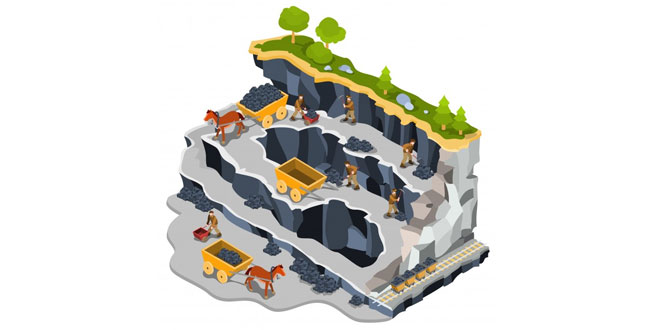Question: Discuss non-conventional power sources.
Answer: Solar, wind, geothermal, tidal and bio-gas are called non-conventional power resources. They have unlimited resources.
- Solar Energy: The sun is the source of all energy on the earth. In the tropical region, solar energy is widely available but it has not been fully developed due to lack of available technology.
- Wind Energy: Wind is another important source of non-conventional energy. The Netherlands is the first country to harness wind energy through windmill.
- Geothermal Energy: The energy derived from the host springs, emission of dry or wet stream from hot rocks is called geothermal energy. USA and Iceland are leaders in generating electricity from geothermal energy.
Question: Write a short note on ‘Energy needs for the future’.
Answer: With increase in the demand for energy and for fast depletion of convention energy resources of energy are gaining importance. This energy is abundant, renewable, pollution free and Eco-friendly. It can be more easily supplied to rural, urban and remote areas. Thus it is called ‘Energy of the future’.
Question: How can we conserve minerals and power resources?
Answer: Continuous mining and wasteful use of minerals and power resources may lead their exhaustion. Therefore it is necessary to use them economically. The steps to conserve our minerals are:
- Efficient utilization of resources.
- Save mines from collapsing.
- Recycling of resources.
- Introduce new techniques and method for extraction.
- Use of alternate energy resources.
Question: 1. Name and describe some non-conventional sources of energy.
Answer: Non-conventional power sources are those power sources that have come into use recently due to the depleting conventional resources and growing awareness. Solar energy, wind energy, geothermal energy, nuclear power and tidal energy are examples of non- conventional power sources.
Solar energy is the heat and light energy captured from the sun. Solar cells help to convert this energy to electricity. Solar energy is used in solar heaters, solar cookers, solar dryers, etc.
Wind energy is the energy possessed by moving air (wind). Windmills are used to convert wind energy to electricity. Wind farms having clusters of windmills located in coastal regions and mountain passes.
Nuclear power is energy possessed by the nuclei of atoms of naturally occurring radioactive elements like uranium-, thorium, etc.
Geothermal energy is the heat energy obtained from the inside of the earth. The temperature inside the earth increases as we go deeper. This heat is used to produce electricity. It is accessed in the form of hot springs. Tidal energy is the energy generated from tides. It is harnessed by building dams at narrow openings of the sea. Bio-gas is a gaseous fuel obtained from the decomposition of organic waste like dead plant and animal material or animal dung and kitchen waste. It is an excellent fuel for cooking and lighting, and is environment-friendly.
Question: Write the advantages and dis-advantages of non-conventional sources of energy.
Answer: Advantages:
- Non-conventional sources of energy are usually inexhaustible. They do not pollute the environment.
- Nuclear power is emitted in large amounts.
- Most non-conventional sources of energy cost less.
- These forms of energy are safe to use and clean.
Disadvantages:
- Wind mills are costly to set up. So using them to harness wind energy is costly, even though the electricity generated from it is cheap.
- Setting up windmills disturbs radio and TV broadcast.
- Harnessing tidal energy destroys natural habitats of wildlife.
- Moreover, tidal energy is difficult to harness.
- Obtaining nuclear energy from radioactive material generates radioactive waste. It is expensive too.
- Bio-gas, although useful and renewable, contributes to greenhouse effect.
 Class Notes NCERT Solutions for CBSE Students
Class Notes NCERT Solutions for CBSE Students


